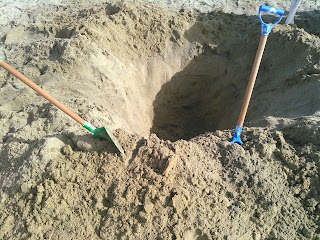Policies can be good or bad but are generally processes and modes of handling situations when they arise. All organizations have policies and procedures that help them understand and guide work behaviors. In most cases the punishments are punitive by nature and should be used with great care to ensure the end result is positive. It is necessary to have a human element and checks/balances to ensure decisions are accurate and based on sound logic.
The most common disciplinary method is progressive by nature and includes threats of termination that can be less effective than structured achievements in meeting goals (Miller, 2014). There are times when the standard punish all that come across the managers desk doesn't work. The approach is counter intuitive and can sometimes lead to lost capital.
There is no such thing as perfect policies and procedures as they consistently run a course and don't often include a value judgement. Ensuring appropriate checks and balances along with human intervention can make a difference in the eventual outcome. Without that intervention the organization could be hurting itself in the long run.
I worked in labor relations for a number of years and I could not count the amount of times an angry manager came with spotty evidence of poor performance and demanded either termination or heavy discipline. Their anger and behaviors were based more in their perception and personality than in any employee violation.
When both sides of the argument was heard and a little time in understanding the "facts" of the case was invested it was the managers who needed discipline. Training was weak, policies were enforced subjectively, there were multiple complaints, turn over was high, customer satisfaction was low, and despite all this the manager continued to rant and rave.
We know that employees can be wrong and in most cases a good dose of discipline is helpful; but it isn't always helpful. If the employee was following what was expected by the culture of a department, manager's poor direction, did what was logical based on the training available, and sought to do his/her job, punishment is counter intuitive and destructive.
Unfortunately the "hot shot" manager sometimes continues down his/her path with all the executive support they need because they know how to play the metrics game. This is where they look good on paper but inadvertently rip the fabric of the department apart. People lose trust, leave, and move into defensive mode. The managers incessant need to be right and in control takes its toll.
A few years later and it becomes apparent how poor the manager actually was. All the skill, knowledge, and resources lost on poor management and improper applications of policies & procedures. X should not always result in Y. High performance disciplinary processes should always seek to understanding first, apply discipline when appropriate, seek routes to positively reinforce positive behavior, and make human judgement calls when the policies don't work.
Miller, L. (2014). Its time to rebrand progressive discipline to structured achievements. The Journal of Medical Practice Management, 29 (5).
The blog discusses current affairs and development of national economic and social health through unique idea generation. Consider the blog a type of thought experiment where ideas are generated to be pondered but should never be considered definitive as a final conclusion. It is just a pathway to understanding and one may equally reject as accept ideas as theoretical dribble. New perspectives, new opportunities, for a new generation. “The price of freedom is eternal vigilance.”—Thomas Jefferson
Monday, August 31, 2015
Sunday, August 30, 2015
Getting Into Biking
Biking is something we did when we were young and then we threw that bike the minute we got a car. From that point on we may have biked a few times a year for fun. If you were an outdoor enthusiast you might have biked the trails on a regular basis.
In some places bikes are not that popular. For example, a bike crowd always existed around universities in Michigan and some of the recreational areas but not much elseware. Places like Detroit are making biking popular again.
States like California have year round biking; depending on where you live. They also have more designated bike trails making the use of bikes more practical. A culture of biking emerges.
The difference between the two places is that biking in one area is mostly recreational because of the seasons while the other area it is both recreational and a practical form of transportation. It is augmented by strong public transportation, ride share, bike lanes and small stores.
In some places bikes are not that popular. For example, a bike crowd always existed around universities in Michigan and some of the recreational areas but not much elseware. Places like Detroit are making biking popular again.
States like California have year round biking; depending on where you live. They also have more designated bike trails making the use of bikes more practical. A culture of biking emerges.
The difference between the two places is that biking in one area is mostly recreational because of the seasons while the other area it is both recreational and a practical form of transportation. It is augmented by strong public transportation, ride share, bike lanes and small stores.
Digging Your Corporation Out of a Hole!
Corporations move through cycles that include start up all the way through its death stage. Typically the death stage occurs when a company can no invest in itself, make payroll or other expenses, and must either liquidate, sell-out, or simply close down. Digging out of a corporate hole sometimes requires taking drastic and immediate changes.
One of the most advantageous methods is to remove all low performing sectors and go directly to your main revenue sources. This is only beneficial if such revenue sources not only serve immediate cash flow needs but also have the propensity to grow. This could include short and long-term cash flow production. Remove or prune the rest.
Once the income streams have been developed based upon the strategic goals of the company it is necessary to streamline. This means that all excess operations that don't add value to the organization must be removed. That value should include the needs of the most important stakeholders. Review all department and positions to ensure they fit properly in this framework.
Transforming companies is not easy. However, with diligence and foresight it is possible to take those businesses with solid market relevant offerings and transform them into high performing businesses. Sometimes this requires a change in marketing, change in strategy, change in products or personnel. Digging your company out of a hole is not easy but is necessary.
One of the most advantageous methods is to remove all low performing sectors and go directly to your main revenue sources. This is only beneficial if such revenue sources not only serve immediate cash flow needs but also have the propensity to grow. This could include short and long-term cash flow production. Remove or prune the rest.
Once the income streams have been developed based upon the strategic goals of the company it is necessary to streamline. This means that all excess operations that don't add value to the organization must be removed. That value should include the needs of the most important stakeholders. Review all department and positions to ensure they fit properly in this framework.
Transforming companies is not easy. However, with diligence and foresight it is possible to take those businesses with solid market relevant offerings and transform them into high performing businesses. Sometimes this requires a change in marketing, change in strategy, change in products or personnel. Digging your company out of a hole is not easy but is necessary.
Early Morning Beaching
Early mornings are the best time to attend the beach. It takes some time to figure this out as the most popular times are around noon and after when the younger crowd finally wakes up. True beach goers start early and get the choice spots.
You can tell a seasoned beach goer by the vans loaded with chairs, surf boards, canoes, and grills. They get their stuff right next to both the water and the grass making their commute easy. You might even find the restrooms within short distance.
Starting early also offers some other benefits. Some of the restaurants have specials on breakfast burritos. It doesnt take much time to bring your vehicle to the beach, unload the bikes and go to breakfast. Make sure you grab your coffee.
Formal and Informal Communication Networks
Communication can take two basic forms in terms of formal or informal. Formal communication occurs within the workplace and informal occurs among our personal connections. Both are important for understanding, integrating and using information successfully. To truly understand a situation often requires listening to both channels of the said and the unsaid.
Formal Communication: Formal communication is official communication that helps the company make official statements. It may also include formally designed communication channels that help an organization, unit or team understand what is going on. Well designed communication channels will consider the speed of information and the reliability of the channels used to reach members.
-Official statements
-Memos
-Email
-Phone
-Alerts
-Company meetings
Informal Communication: Informal communication occurs organically in the population and encompasses everything that isn't formal. These are the conversations that occur over the water cooler and backrooms. It is the type of communication that is based more on trust and friendship than a formal channel.
-Personal emails
-Personal text
-After the meeting conversation
-Casual discussion
-Parties and social events
Formal Communication: Formal communication is official communication that helps the company make official statements. It may also include formally designed communication channels that help an organization, unit or team understand what is going on. Well designed communication channels will consider the speed of information and the reliability of the channels used to reach members.
-Official statements
-Memos
-Phone
-Alerts
-Company meetings
Informal Communication: Informal communication occurs organically in the population and encompasses everything that isn't formal. These are the conversations that occur over the water cooler and backrooms. It is the type of communication that is based more on trust and friendship than a formal channel.
-Personal emails
-Personal text
-After the meeting conversation
-Casual discussion
-Parties and social events
Subscribe to:
Posts (Atom)



